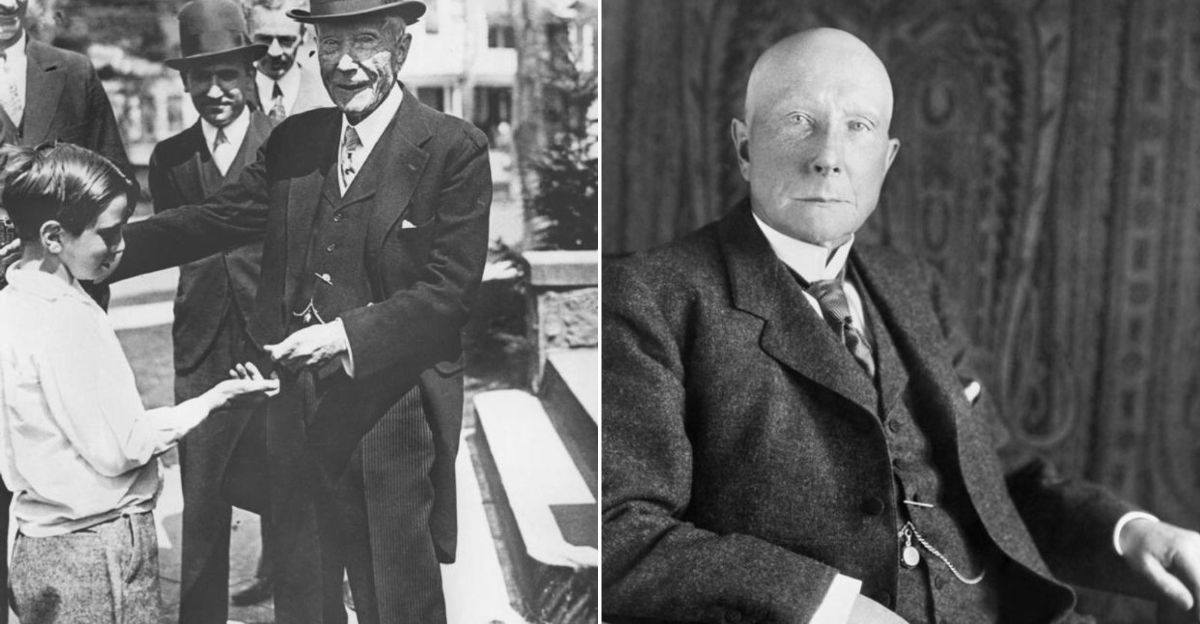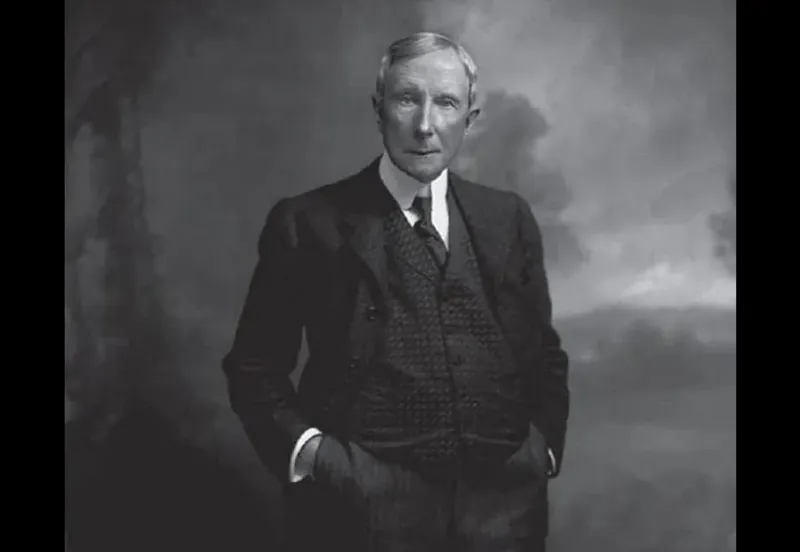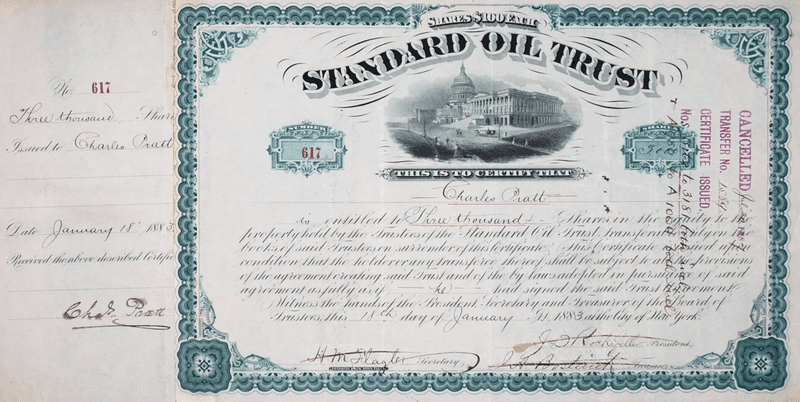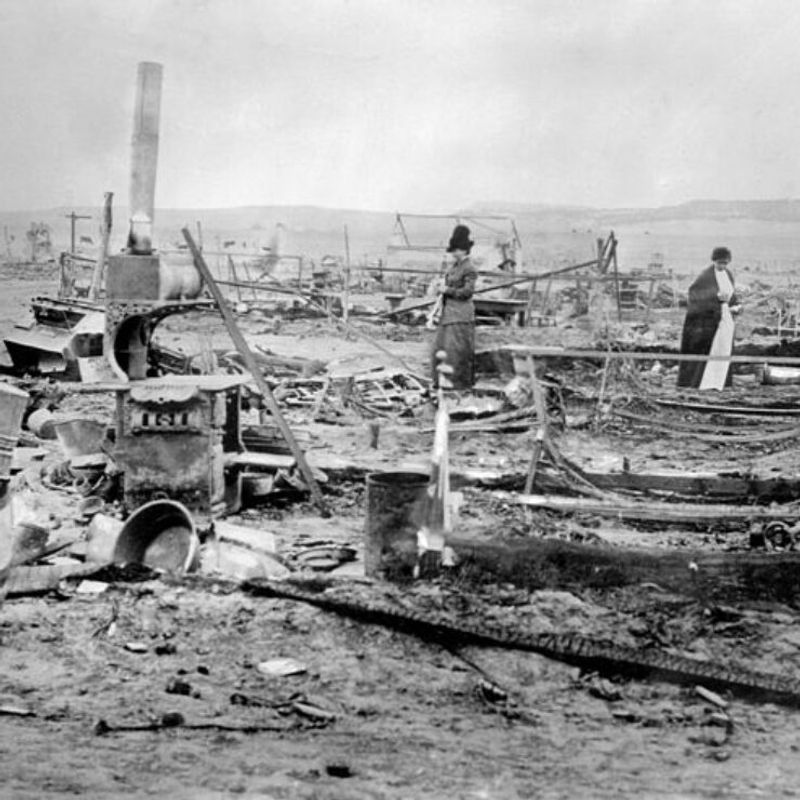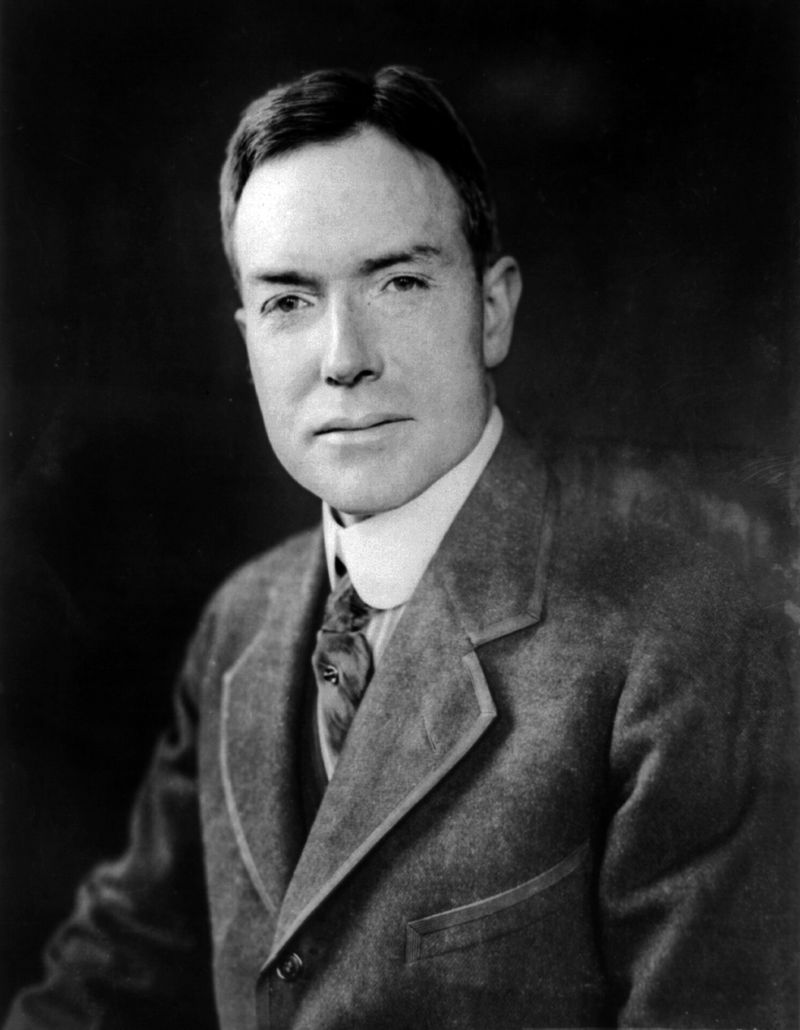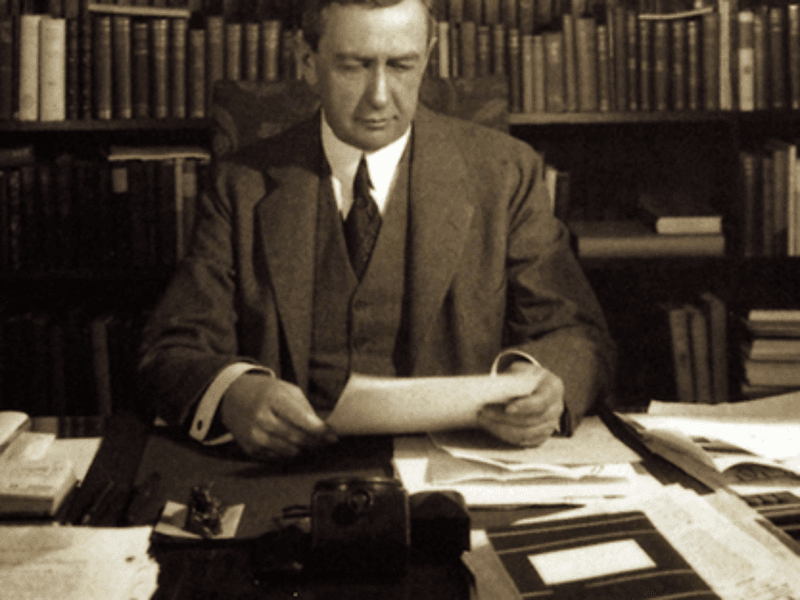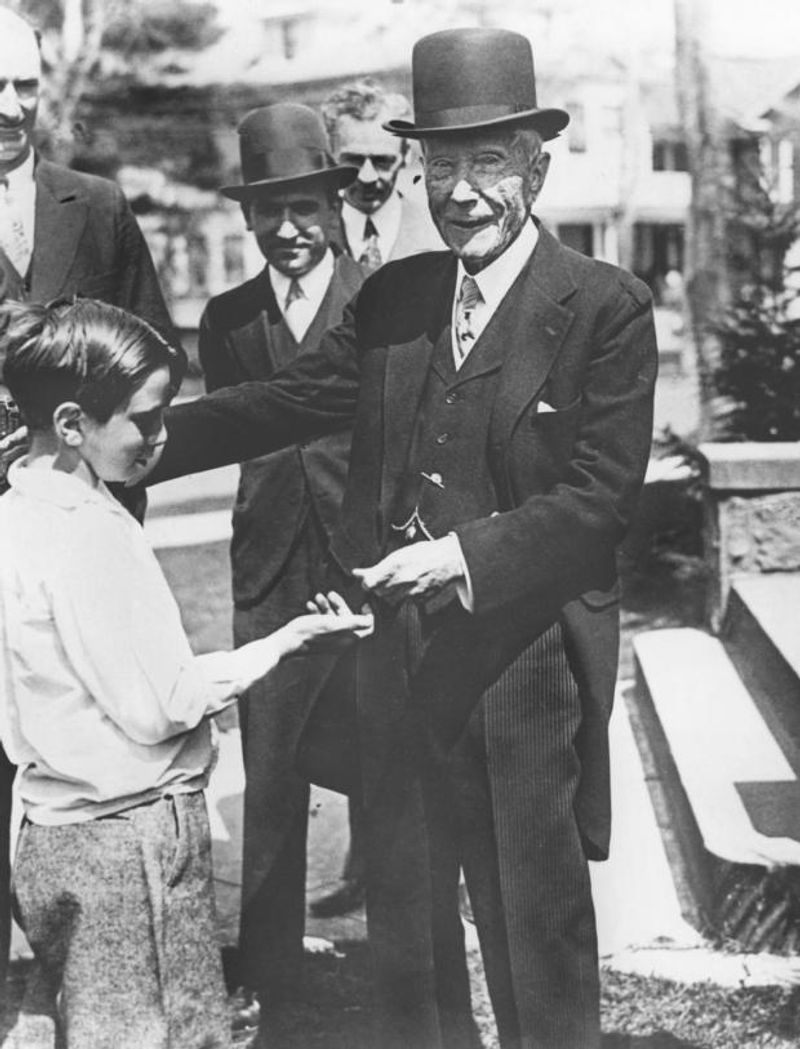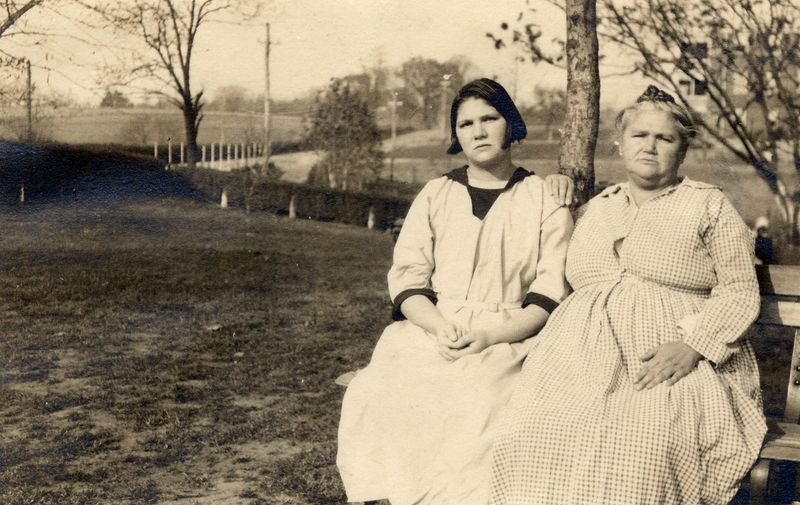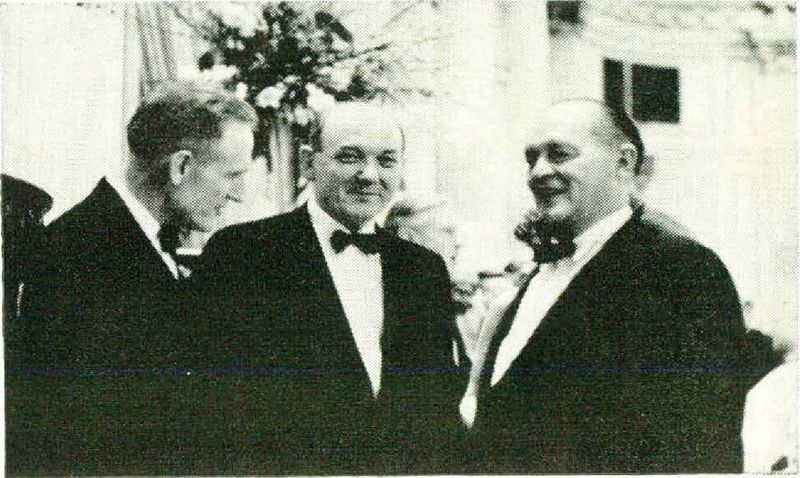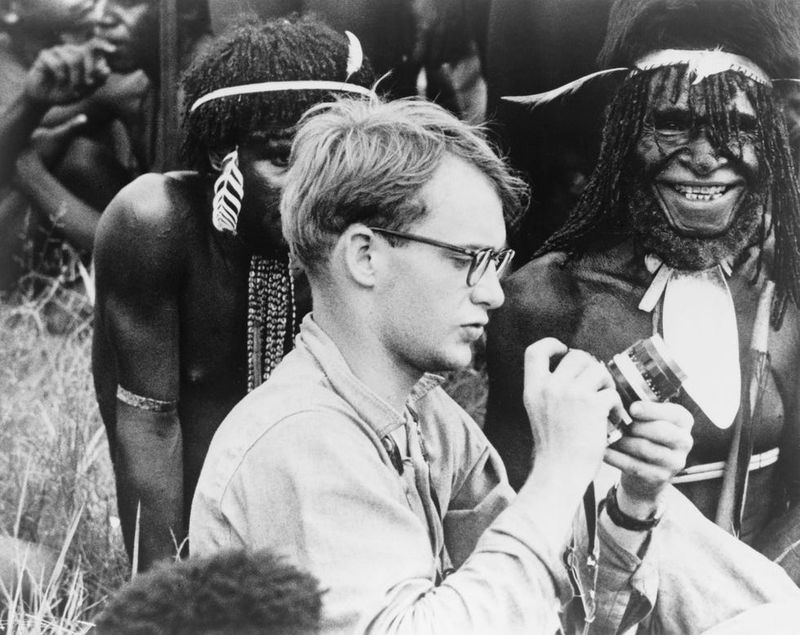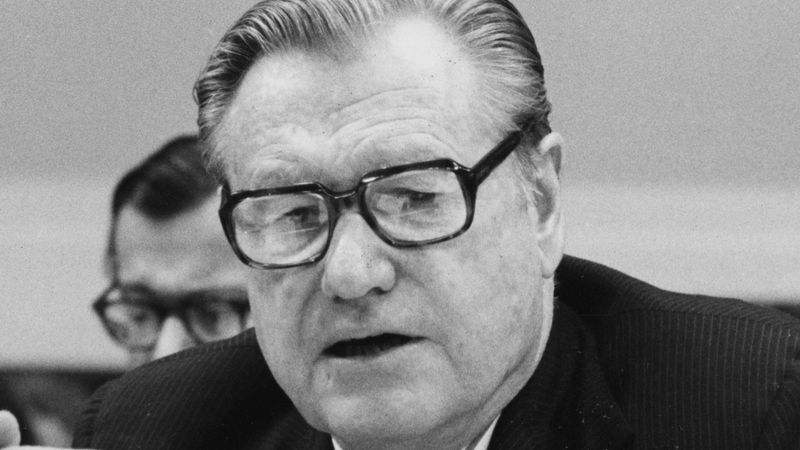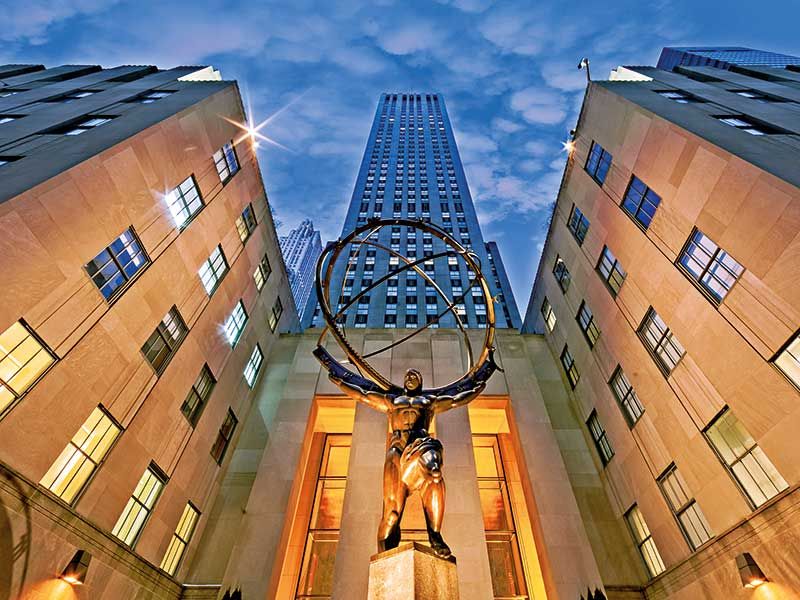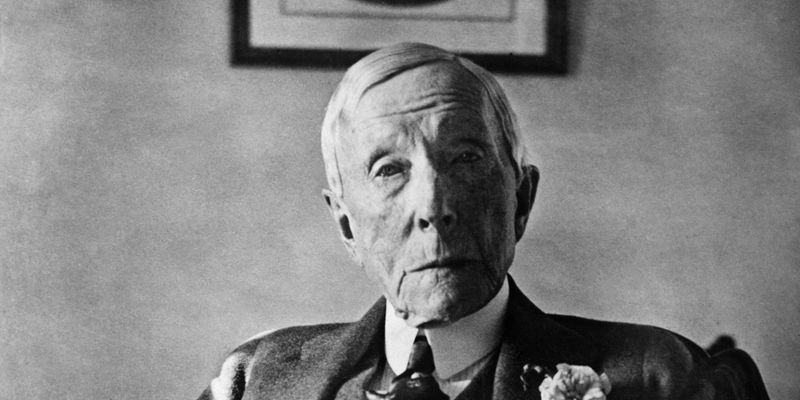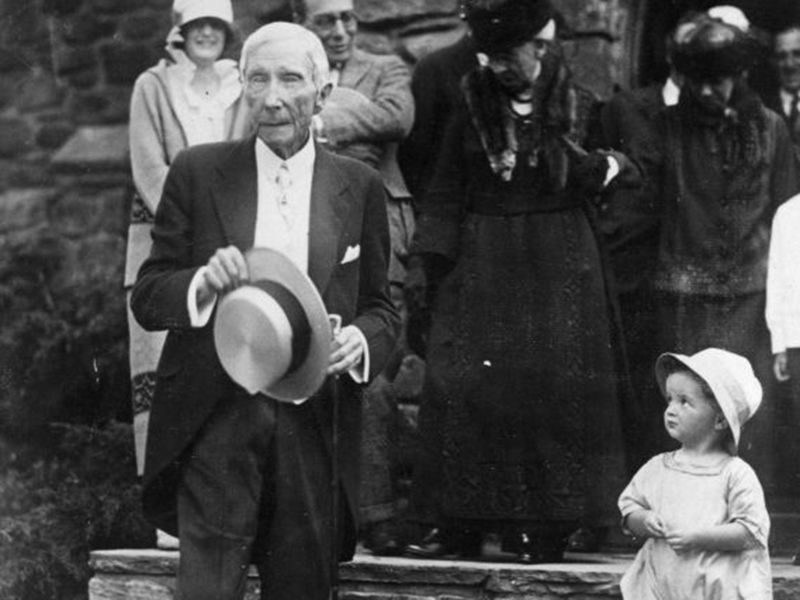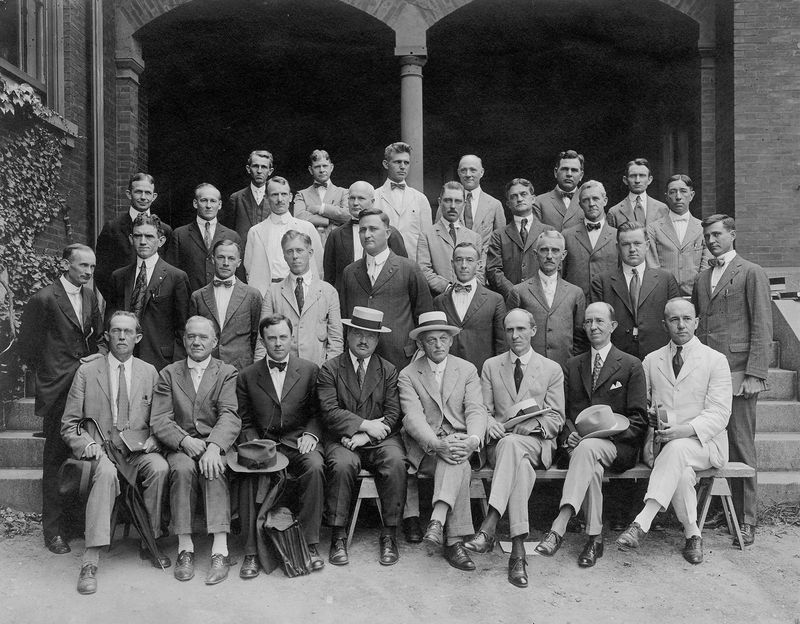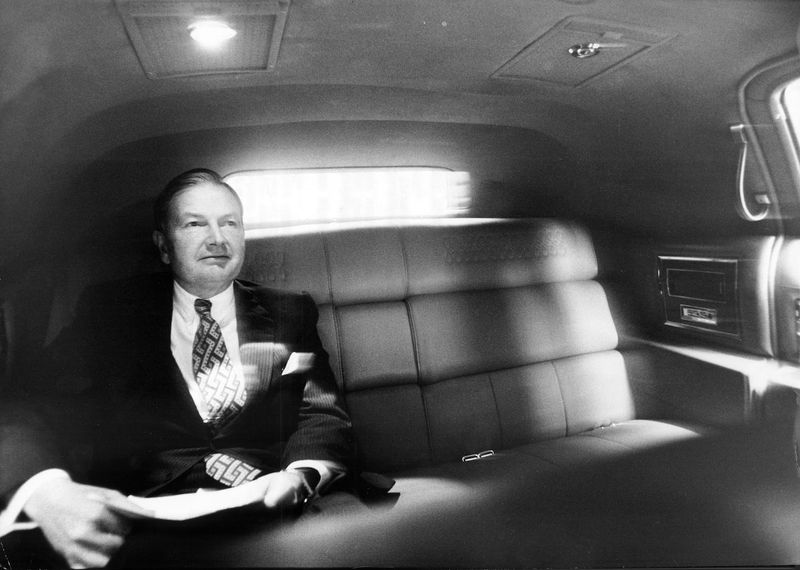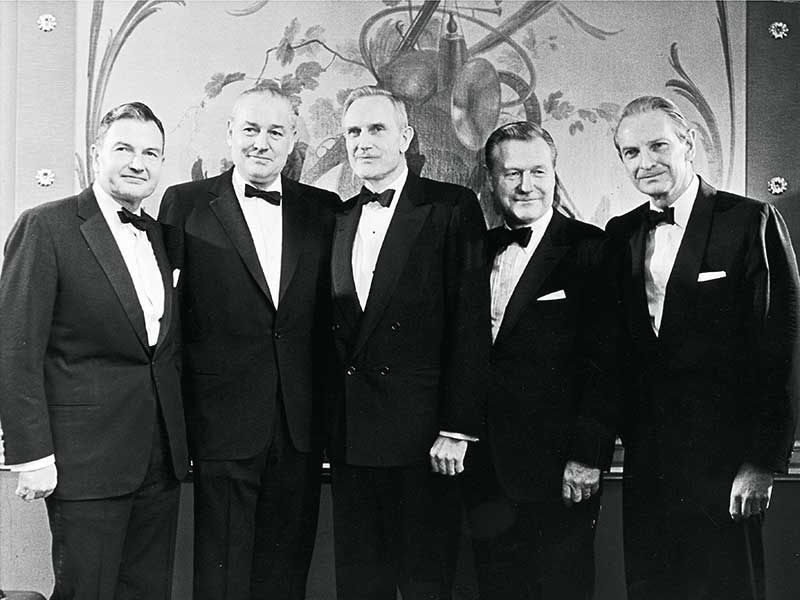They’re known as America’s first billionaire dynasty, the embodiment of success and philanthropy. But behind the wealth and power, the Rockefellers have a surprisingly dark history—filled with ruthless ambition, political manipulation, and more than a few skeletons in the closet. These 18 disturbing facts reveal the darker side of America’s most famous family.
1. John D. Rockefeller Crushed Rivals to Build His Empire
With a steely resolve, John D. Rockefeller crushed rivals to forge the mighty Standard Oil empire. His tactics? Let’s just say they were less than friendly. Competitors found themselves facing predatory pricing and secret railroad deals. The market was anything but free. Rockefeller’s strategy was simple: dominate or devour. Ruthless ambition drove him to buy struggling companies for a pittance. Anecdote has it, he once said competition was a sin.
His empire wasn’t just built; it was conquered. This aggressive expansion set the stage for an oil monopoly that would eventually come under the government’s scrutiny.
2. The Government Broke Up His Monopoly—But It Made Him Richer
Ever heard of winning by losing? John D. Rockefeller mastered it. When the U.S. Supreme Court broke up Standard Oil in 1911, it wasn’t the end—it was a new beginning. Strangely, this anti-monopoly ruling led to exponential wealth.
How? Rockefeller owned stock in each of the newly formed companies. As they flourished, so did his fortune. Talk about a silver lining! His net worth soared, proving that sometimes the law of unintended consequences works wonders. This financial twist made Rockefeller even more influential, cementing his legacy in the annals of American wealth.
3. The Ludlow Massacre: Rockefeller’s Name Was All Over It
April 20, 1914—a harrowing day etched into history as the Ludlow Massacre unfolded. The backdrop? A coal miners’ strike in Colorado. The stage was set for tragedy as the National Guard, funded by Rockefeller’s company, clashed with workers.
The result was catastrophic. Women and children perished amidst the chaos. Rockefeller’s name was inextricably linked to the violence. Public outcry was fierce, but Rockefeller Jr. remained unrepentant. He defended the company’s actions, showcasing a chilling indifference. This dark chapter in labor history tarnished the family’s reputation, casting a long shadow over their legacy.
4. John D. Rockefeller Never Regretted It
Some actions haunt the conscience, but not for John D. Rockefeller Jr. Despite the outcry after the Ludlow Massacre, regret was absent from his demeanor. Instead, he doubled down, hiring Ivy Lee, the father of public relations, to spin the narrative.
His approach was calculated, not contrite. Public opinion? A mere obstacle to overcome. The Rockefeller name needed cleansing, and Lee’s ingenuity was the tool. This episode marked a pivotal moment in PR history, showcasing the power of media manipulation. While the world watched, Rockefeller remained unfazed, his conscience seemingly impenetrable.
5. They Helped Birth Modern Propaganda
In a world of spin and spectacle, the Rockefellers were pioneers. The need to reshape their image led them to Ivy Lee, whose influence birthed modern propaganda. Imagine planting stories, crafting narratives—essentially the art of perception.
Lee’s strategy involved newspapers, photo ops, and scripted events, setting a blueprint for corporate PR. The Rockefellers transformed from villains to philanthropists in the public eye. How? By controlling the narrative. This crafted image of benevolence was as strategic as it was successful, proving that perception often trumps reality. The legacy of this PR revolution endures today.
6. The Family Profited During the Great Depression
The Great Depression—a time of despair and destitution. Yet, amidst breadlines and economic turmoil, the Rockefellers thrived. John D. Rockefeller’s symbolic act of handing out dimes to strangers painted a façade of generosity. In reality, it was business as usual.
Their wealth quietly multiplied, hidden behind those small gestures. The Rockefellers’ fortune became a symbol of resilience, as millions struggled. This dichotomy—public benevolence versus private gain—revealed a complex portrait of the family. Behind the smiles and dimes lay a shrewd strategy of wealth consolidation, underscoring the intricacies of their legacy.
7. The Rockefellers Backed Eugenics Research
Science and society collided in unsettling ways, as Rockefeller money flowed into eugenics research. The family’s fortune fueled studies aimed at improving human genetics. Ambition, it seemed, knew no ethical boundaries.
The repercussions? Far-reaching and controversial. This research later influenced Nazi ideology and racial purity campaigns. The family’s involvement in such a sensitive field raised eyebrows and questions about moral responsibility. While intended to advance science, the ethical ramifications were profound, leaving a controversial stain on their philanthropic efforts. The legacy of this support remains a contentious topic in historical discourse.
8. They Had Ties to Nazi Germany
Whispers of scandal surrounded the Rockefellers’ ties to Nazi Germany. Their financial empire had connections to companies operating during the regime, including IG Farben, notorious for war crimes. These links, while indirect, raised ethical dilemmas in the postwar era.
The family’s business interests crossed volatile political landscapes, creating complex relationships. In the aftermath, questions lingered about complicity and moral obligations. This chapter of their history remains a haunting reminder of how money and power can intertwine with dark political narratives. Despite their distance, the shadows of these associations cast a long legacy.
9. A Family Member Mysteriously Vanished in New Guinea
Adventurer or victim? Michael Rockefeller’s disappearance in 1961 remains shrouded in mystery. While exploring Papua New Guinea, the young heir vanished without a trace. Some say he drowned, others whisper of cannibalistic tribes.
The son of New York’s governor left an enigmatic void, sparking endless speculation. His body was never found, leaving questions unanswered. This unsolved mystery captivated the world, adding a layer of intrigue to the Rockefeller legacy. The tale of Michael’s vanishing exemplifies the unpredictability of life, even for those born into privilege, and continues to fascinate decades later.
10. Nelson Rockefeller Had a Scandalous Death
Whispers echoed through corridors of power as news broke of Nelson Rockefeller’s untimely death. In 1979, the former Vice President passed away from a heart attack, but it was the setting that stirred controversy.
He died in the apartment of a much younger aide—a scandalous twist. Rumors of an affair and a potential cover-up dominated headlines. This unexpected event added a salacious chapter to the Rockefeller story. The image of a powerful man meeting an unexpected end in compromised circumstances captured the public’s imagination, leaving a legacy marked by intrigue and speculation.
11. They Quietly Built a Global Power Network
Behind closed doors, power was brokered. The Rockefellers quietly wove a global network through entities like the Council on Foreign Relations and the Trilateral Commission. In these elite circles, international policy and economics were shaped.
Their influence spanned continents, often unseen by the public eye. This strategic positioning enabled the family to mold global narratives. The legacy of this discreet empire-building endures, highlighting a sophisticated understanding of power dynamics. The Rockefellers’ ability to operate subtly yet effectively underscores their enduring impact on the world stage, a testament to their strategic foresight.
12. Their Name Is Tied to the CIA’s Origins
Espionage and intrigue linked the Rockefellers to the CIA’s early days. Allen Dulles, the agency’s longest-serving director, had connections to Rockefeller interests. Their philanthropic and financial influence helped shape Cold War intelligence strategies.
This relationship positioned the Rockefellers at the heart of global espionage narratives. The blending of wealth and intelligence created a fascinating dynamic. While not directly involved, their support played a crucial role in the CIA’s formative years. The family’s fingerprints on this aspect of history exemplify their multifaceted influence, intertwining wealth, philanthropy, and international intrigue.
13. They Helped Design a Global Health System—With Controversy
In the realm of global health, the Rockefeller Foundation’s influence was profound. They funded the early development of the World Health Organization and other medical institutions. While praised for combating diseases, their role wasn’t without controversy.
Critics argued their involvement was a means to exert geopolitical control through health policy. This dual narrative of benevolence and strategy painted a complex picture. The Rockefellers’ impact on global health systems remains a testament to their ability to intertwine philanthropy with influence, illustrating the delicate balance between altruistic intentions and strategic gains.
14. Their Fortune Was Built on Fossil Fuels—Then They Funded Climate Research
Irony laced the Rockefeller story as they shifted from fossil fuels to climate research. The family that amassed wealth from oil later exposed the environmental dangers of those very resources. A strategic shift or genuine concern?
Opinions vary. Some viewed this as controlling the narrative, ensuring their legacy aligned with contemporary values. Others saw it as a progressive evolution. This complex relationship with energy and environment exemplifies the Rockefellers’ adaptability in changing times, reflecting a nuanced approach to legacy building. The interplay between past and present underscores their lasting impact on global narratives.
15. They Controlled Universities, Media, and Medicine
Educational institutions, media, and medicine—domains the Rockefellers profoundly influenced. Their funding wasn’t mere charity; it was leverage. Universities, journalism, and medical fields felt their touch, with strings attached.
This influence reshaped ideologies, aligning them with family interests. Critics pointed to the subtle yet pervasive control exerted. While their contributions were significant, they were strategic. The intertwining of philanthropy and influence underscores their legacy, highlighting the complexity of their impact on American institutions. Through calculated funding, the Rockefellers sculpted a landscape that suited their vision, leaving a lasting imprint.
16. Their Philanthropy Was a Strategic Power Move
Philanthropy—a noble pursuit or strategic maneuver? For the Rockefellers, it was both. Their charitable giving bought goodwill and shaped opinion. Behind every donation lay a calculated intent to mold global policy.
Even their support for arts and education carried political undercurrents. This strategic philanthropy allowed the family to maintain influence while appearing benevolent. Their legacy in this realm is complex, blending altruistic acts with strategic foresight. By intertwining charity with power, the Rockefellers exemplified how philanthropy could be a tool for broader ambitions, illustrating the multifaceted nature of their influence.
17. They Were Accused of Creating a “Shadow Government”
Conspiracy theories abound, accusing the Rockefellers of orchestrating a New World Order. While extreme, these claims reflect real influence. The family’s involvement in international councils fueled speculation about a “shadow government.”
Their undeniable impact on global geopolitics lent credence to such narratives. Critics argued that their power extended beyond public view, shaping world events. Though lacking concrete evidence, these theories highlight the enigmatic nature of the Rockefeller legacy. Their ability to operate in the shadows, real or imagined, underscores the mystique surrounding their influence, a testament to their complex role in history.
18. Their Legacy Is Carefully Controlled
Legacy crafting—an art perfected by the Rockefellers. In recent decades, they’ve maintained a low profile, shaping the world quietly through boardrooms and foundations. Their influence remains profound, yet discreet.
By controlling their narrative, the family ensured their impact endured without the glare of public scrutiny. This strategic retreat into subtlety exemplifies their understanding of power dynamics. The Rockefellers’ legacy, carefully curated, remains a testament to their ability to adapt and thrive in changing times. Their story continues to unfold, a silent yet powerful force in the tapestry of modern history.
